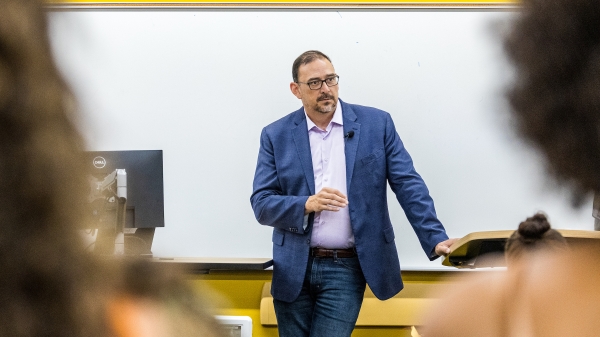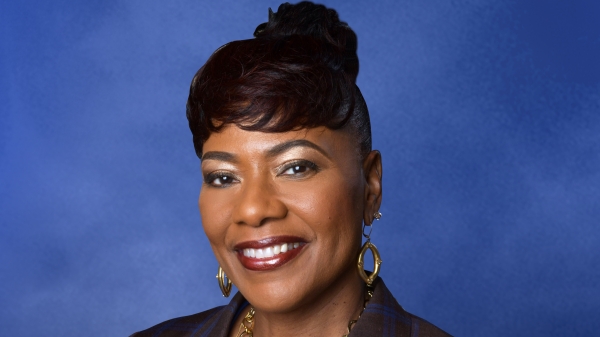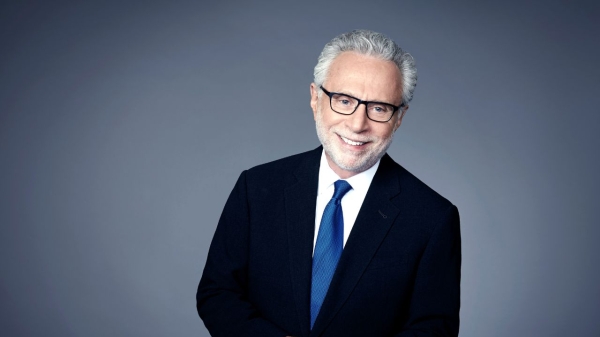Sun Devil DACA recipient siblings celebrate graduation together

Carlos and Nicole Yanez Navarro.
Editor's note: This story is part of a series of profiles of notable fall 2020 graduates.
Siblings Carlos Yanez Navarro and Nicole Yanez Navarro weren’t supposed to “walk the stage” on the same day. Nicole, originally a few semesters behind her brother, took on extra classes each semester so that they could graduate together this December. And while there won’t be an in-person commemoration at Desert Financial Arena like usual, the Yanez Navarros plan on creating their own in their backyard on commencement day, Dec. 14. Their grandmother, who lives in the family’s native Chihuahua, Mexico, might even make the trip to Phoenix. It will also be their father’s birthday. The Yanez Navarro family has much to celebrate, and Carlos and Nicole’s achievements embody decades of sacrifice.
“I knew I wanted to graduate with my brother and give that gift to my parents and my grandmother because they’ve been a huge support for us. We wanted to experience it together,” Nicole said.
The future is bright for the siblings, but as undocumented students, their journey has been punctuated by obstacles that they and thousands of others face in seeking higher education in the United States. Before they could realize their dreams, they had to overcome barriers that their peers didn’t have to face, including access to very limited financial aid and arduous processes.
“When I was getting out of high school, I still wasn’t sure if I was going to be able to go to college or receive any further education because of our legal status,” Nicole said.
With the help of her mother and family friends, Nicole, 23, was able to become a Deferred Action for Early Childhood Arrivals recipient while Carlos, 21, was able to do the same about two years later, which meant temporary assurance that they could remain in the United States, where they have lived since they were children. Meticulous DACA requirements can make or break a person's chances of being a recipient — one part of the process requires proof of residence within the United States in every year since 2007.
“That meant getting six to seven documents a year [since 2007]. We pulled out everything we had — middle school certificates, school attendance records — I remember it being a process,” Carlos said. “We were lucky because we had a lot of written proof, but a lot of people have a hard time with providing these documents.”
Although the DACA process is a difficult and tiring one, it has only fueled inspiration in the Yanez Navarro siblings to take on careers centered around helping others, particularly those in more vulnerable situations.
Carlos, who is graduating with three degrees this December — justice studies, political science and transborder Chicana/o and Latina/o studies (U.S. and Mexican regional immigration policy and economy) — is hoping to work for a community-based organization as an attorney. He was selected as the Hispanic Convocation Outstanding Undergraduate Student Awardee, and he already has substantial experience working with DREAMzone, a community and resource at ASU dedicated to helping DACA, undocumented and students from mixed-immigration-status families succeed at ASU. Nicole, who currently works as a nurse since she previously earned her associate degree and recently passed the NCLEX-RN, is graduating with a Bachelor of Science in nursing from the ASU Edson College of Nursing and Health Innovation. She is hoping to eventually open up a nonprofit practice with her friends and fellow nurse practitioners to help people in low-income communities or those who face language and cultural barriers.
As they prepared to graduate, Carlos and Nicole reflected on their time at ASU and what advice they have for other Sun Devils.
Question: What was your “aha” moment, when you realized you wanted to study the field you majored in?
Carlos: For me, I’ve been involved in a lot of community organizing for a while. I started organizing when I was in high school, so I was helping people with their DACA forms and the naturalization process. I was also involved in other community organizations. I used to want to become a doctor and originally started at ASU studying biology. I ended up switching after becoming more involved in volunteering.
Nicole: I realized that I wanted to major in nursing early on when I was still in middle school. My parents only speak Spanish, and growing up, I always watched my parents struggle with the language barrier when seeking health care. Although translators were always available, many things became lost in translation and a lot of the time they were still left with uncertainty. I knew early on that I wanted to make a difference in the nursing field by being able to communicate with Spanish-speaking families and allow them to leave my care feeling comfortable and knowing that all of their concerns are addressed.
Q: During your time at ASU, what has inspired you or changed your perspective?
Carlos: As part of our DREAMZone collaborations with on-campus clubs, we worked to build mentorship programs. My mentee’s story really stuck with me. She wasn’t eligible to apply for DACA because of the confusion surrounding the cancellation. She’s fully undocumented without the permit, but she keeps moving forward — she just added a minor and another certificate. The tuition is pretty expensive, and she’s not on any specific scholarships.
Q: Why did you choose ASU?
Carlos: So I could stay close to my family. I didn’t want to go out of state because of them.
Nicole: I chose ASU because they allowed me to begin my bachelor’s program while completing my associate degree in nursing at Gateway Community College. This concurrent enrollment program allowed me to finish both programs only one semester apart from one another and be able to start my nursing career only a few weeks after finishing school.
Q: Which professor taught you the most important lesson while at ASU?
Carlos: Professor Eileen McConnell, from the School of Transborder Studies, really helped me out. I was at the Supreme Court deliberations for the DACA argument last year, and she was the one who helped me afford the plane ticket to Washington, D.C. I was taking one of her classes during the time, and she’s been there for me for the past year helping with recommendations and introducing me to other undocumented lawyers. She has been so helpful.
Q: What’s the best piece of advice you’d give to those still in school?
Carlos: During my time at ASU, I saw all my friends and the people who came through DREAMZone persevere and keep going. Besides DACA recipients, I’ve met some TPS [temporary protected status] holders and people with different statuses. They make the best of the situation and keep pushing through. I think that is something I’d tell other people. We all play with the cards, but it’s still up to us to push through.
Nicole: Yeah, make the best out of the situation that you have.
Q: What was your favorite spot on campus, whether for studying, meeting friends or just thinking about life?
Carlos: Hayden Library, but the old one [before renovations]! There were booths on the first basement floor where we’d study.
Nicole: When I was still doing community college and ASU Online, we’d meet up together and do homework. We were each other’s inspiration the whole time; we kept pushing each other throughout college.
Q: What are your plans after graduation?
Carlos: I’m applying to law school right now. I’ve been accepted to two schools so far, so right now I’m waiting on other schools’ decisions and weighing financial aid. I’m planning on studying immigration and asylum law. The Florence Project is a really good example of where I want to work. They get a lot of people out of detention centers and help asylum cases go through. [Carlos now does work for The Florence Project as a legal assistant.]
Nicole: For now, I just graduated with my associate degree in nursing. As soon as I passed the NCLEX-RN exam, I started working as a nurse right away. This is my third month. So once I’m done with my BSN, I’m going to take a break from school and go back to get a master’s in about a year.
Written by Julian Klein, ASU Student Life
More Law, journalism and politics

Arizona secretary of state encourages students to vote
Arizona Secretary of State Adrian Fontes looked right and left, taking in the more than 100 students who gathered to hear him…

Peace advocate Bernice A. King to speak at ASU in October
Bernice A. King is committed to creating a more peaceful, just and humane world through nonviolent social change.“We cannot…

CNN’s Wolf Blitzer to receive 41st Walter Cronkite Award for Excellence in Journalism
Wolf Blitzer, the longtime CNN journalist and anchor of “The Situation Room With Wolf Blitzer,” will accept the 41st Walter…